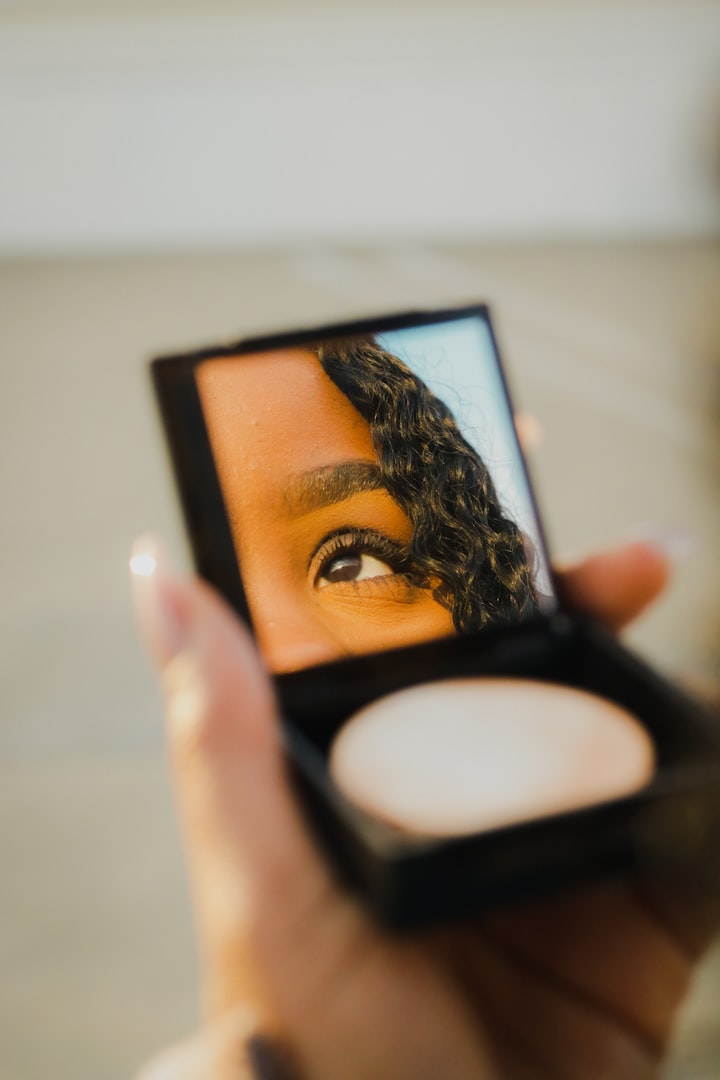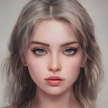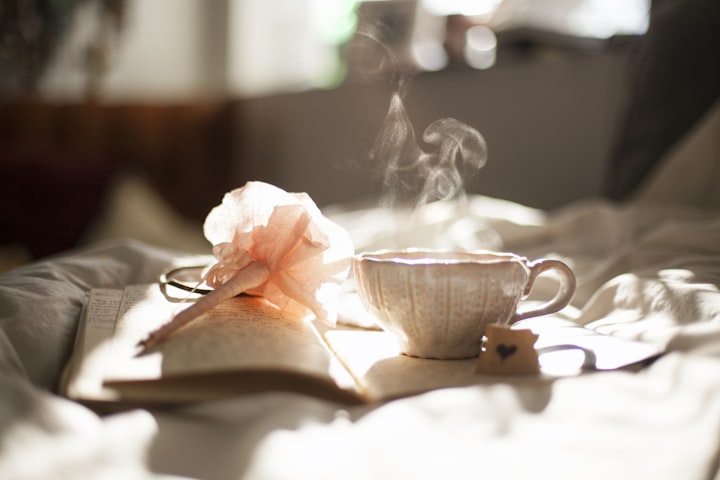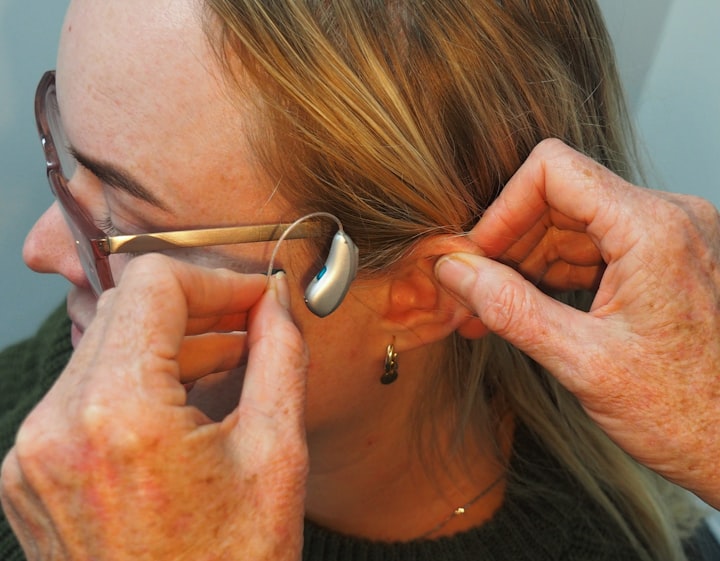Unlocking Your Inner Beauty: A Comprehensive Guide To Nurturing Your Skin, Hair, and Body
Start Taking Care Of Yourself

Beauty is a multi-faceted concept that encompasses much more than just one's physical appearance. It is a reflection of the harmony that exists between our inner and outer selves, and the confidence that comes from feeling good in our own skin. In this eBook, we will explore the different aspects of beauty and provide you with the tools and tips you need to enhance your natural beauty, boost your self-confidence, and radiate positivity. From skincare to haircare to self-care, we will cover it all.
Understanding Your Skin
Our skin is the largest organ in our body, serving as a protective barrier against the external environment. It is essential to take care of it properly to keep it healthy and radiant. In this chapter, we will explore the different skin types, their unique characteristics, and the best ways to care for each one.
Skin Types
There are five main skin types: normal, oily, dry, combination, and sensitive. Understanding your skin type is crucial as it determines the type of products you should use to care for your skin effectively.
Normal Skin
Normal skin is characterized by a balanced oil and moisture content. It appears clear, radiant, and has a smooth texture. If you have normal skin, you are lucky as you don't need to use a lot of products to maintain its health. A gentle cleanser, moisturizer, and sunscreen should suffice.
Oily Skin
Oily skin produces an excess amount of sebum, making it appear shiny and greasy. People with oily skin are prone to acne and blackheads. If you have oily skin, you should use a gentle, oil-free cleanser and moisturizer. Look for products that contain salicylic acid or benzoyl peroxide to prevent breakouts.
Dry Skin
Dry skin is characterized by a lack of moisture, making it feel tight and flaky. People with dry skin are prone to premature aging, fine lines, and wrinkles. If you have dry skin, you should use a moisturizer that contains humectants such as glycerin or hyaluronic acid to retain moisture. Avoid using harsh soaps and opt for a gentle cleanser.
Combination Skin
Combination skin is a mix of oily and dry skin. People with combination skin have an oily T-zone (forehead, nose, and chin) and dry cheeks. If you have combination skin, you should use a gentle, oil-free cleanser and a moisturizer that is suitable for both dry and oily skin.
Sensitive Skin
Sensitive skin is easily irritated, causing redness, itching, and inflammation. People with sensitive skin should use gentle, fragrance-free products that do not contain alcohol or harsh chemicals. Look for products that contain soothing ingredients such as aloe vera or chamomile.
Skin Concerns
In addition to skin types, there are also common skin concerns that people may face, such as acne, dryness, and aging.
Acne
Acne is a common skin condition that affects people of all ages. It is caused by excess oil production, clogged pores, and bacteria. To prevent acne, you should maintain a regular skincare routine that includes cleansing, exfoliating, and moisturizing. Look for products that contain salicylic acid or benzoyl peroxide to help clear up existing breakouts.
Dryness
Dryness is a common concern, particularly during the winter months. To combat dry skin, you should use a moisturizer that contains humectants such as glycerin or hyaluronic acid to retain moisture. You should also avoid taking hot showers, as hot water can strip your skin of its natural oils.
Aging
Aging is a natural process that affects everyone. As we age, our skin loses elasticity, and fine lines and wrinkles start to appear. To prevent premature aging, you should protect your skin from the sun by using a sunscreen with an SPF of at least 30. You should also use products that contain retinoids to help reduce the appearance of fine lines and wrinkles.
Expert Tips
Determine your skin type: Understanding your skin type is crucial as it determines the type of products you should use to care for your skin effectively.
Use a gentle cleanser: Cleansing your skin removes dirt, oil, and makeup. Use a gentle cleanser that is suitable for your skin type and avoid harsh soaps that can strip your skin of its natural oils.
Moisturize daily: Moisturizing your skin helps to retain moisture and prevent dryness. Use a moisturizer that is suitable for your skin type and contains ingredients such as glycerin or hyaluronic acid.
Protect your skin from the sun: Protecting your skin from the sun is one of the best ways to prevent premature aging and skin damage. Use a sunscreen with an SPF of at least 30 and reapply every two hours.
Avoid harsh chemicals: Avoid using products that contain alcohol or harsh chemicals that can irritate your skin, especially if you have sensitive skin.
Stay hydrated: Drinking enough water helps to keep your skin hydrated and healthy. Aim to drink at least 8 glasses of water a day.
Get enough sleep: Lack of sleep can lead to dull, tired-looking skin. Aim to get 7-8 hours of sleep each night to help your skin look and feel its best.
Don't over-exfoliate: Exfoliating helps to remove dead skin cells, but over-exfoliating can damage your skin. Limit exfoliation to once or twice a week and use a gentle exfoliant.
Eat a healthy diet: Eating a diet rich in fruits, vegetables, and healthy fats can help to nourish your skin from the inside out.
Manage stress: Stress can lead to skin problems such as acne and eczema. Practice stress management techniques such as meditation or yoga to help keep your skin healthy.
Nourishing Your Skin from Within and Without
A healthy, radiant complexion is something that many people strive for. While there are many skincare products and treatments available, the key to achieving beautiful, healthy skin is to take care of it from the inside out. In this chapter, we will explore the importance of nutrition, hydration, and exercise in maintaining healthy skin. We will also delve into the benefits of natural skincare ingredients and provide you with DIY recipes for creating your own skincare products.
The Importance of Nutrition for Healthy Skin
The food that you eat has a significant impact on your skin's health and appearance. Eating a healthy diet rich in fruits, vegetables, whole grains, and lean proteins can help to nourish your skin from the inside out. Vitamins and minerals such as vitamin C, vitamin E, and zinc are especially important for healthy skin. Vitamin C helps to promote collagen production, which keeps your skin looking firm and youthful. Vitamin E is an antioxidant that protects your skin from damage caused by free radicals, while zinc helps to regulate oil production and prevent acne.
In addition to eating a healthy diet, it's also important to stay hydrated. Drinking enough water helps to flush toxins from your body and keep your skin looking plump and hydrated.
The Role of Exercise in Healthy Skin
Exercise is another important factor in maintaining healthy skin. Regular exercise helps to increase blood flow and oxygen to your skin, which can help to give you a healthy, glowing complexion. Exercise also helps to reduce stress, which can be a trigger for skin problems such as acne and eczema.
The Benefits of Natural Skincare Ingredients
Many skincare products on the market contain harsh chemicals that can irritate your skin. Natural skincare ingredients, on the other hand, are gentle and nourishing for your skin. Some of the best natural skincare ingredients include:
Coconut oil: This versatile oil is rich in antioxidants and can help to moisturize and soothe dry skin.
Aloe vera: Aloe vera is a natural anti-inflammatory and can help to reduce redness and irritation.
Honey: Honey is a natural humectant, which means that it helps to lock in moisture and keep your skin hydrated.
Tea tree oil: This essential oil has antimicrobial properties and can help to reduce acne and other skin blemishes.
DIY Skincare Recipes
Creating your own skincare products is a fun and cost-effective way to take care of your skin. Here are some easy DIY skincare recipes that you can try at home:
Coconut oil and sugar scrub: Mix 1/4 cup of coconut oil with 1/2 cup of sugar to create a gentle exfoliating scrub. Apply to your skin in a circular motion and rinse with warm water.
Aloe vera face mask: Mix 1 tablespoon of aloe vera gel with 1 tablespoon of honey to create a hydrating face mask. Apply to your face and leave on for 10-15 minutes before rinsing with warm water.
Tea tree oil toner: Mix 1/2 cup of witch hazel with 10 drops of tea tree oil to create a natural toner for acne-prone skin. Apply to your face with a cotton pad after cleansing.
Conclusion To Skincare
Taking care of your skin is not just about using the right skincare products. It's about nourishing your skin from within with a healthy diet, staying hydrated, and exercising regularly. Using natural skincare ingredients and DIY skincare recipes can also be a fun and effective way to take care of your skin. By following these tips, you can achieve healthy, radiant skin that you can be proud of.
Haircare for All Hair Types
Our hair is one of the defining features of our appearance, and it's essential to take care of it properly. However, not all hair is the same, and different hair types require different care. In this chapter, we will cover the different hair types, their unique needs, and the best ways to care for them. We will also provide you with expert advice on how to prevent hair damage and promote hair growth.
Understanding Different Hair Types
There are several different hair types, including straight, wavy, curly, and coily. Each hair type has its unique characteristics and requires different care. Straight hair is the most common hair type and is typically oily at the roots and dry at the ends. Wavy hair is characterized by loose, flowing waves, and requires extra moisture to prevent frizz. Curly hair is tighter and requires more moisture to prevent dryness and breakage. Coily hair is the tightest curl pattern and requires intensive moisture to prevent breakage and maintain elasticity.
Caring for Different Hair Types
When it comes to hair care, one size does not fit all. Different hair types require different care to stay healthy and look their best. Here are some tips for caring for different hair types:
Straight hair: Use a gentle shampoo and conditioner to prevent stripping the natural oils from your hair. Avoid using too much heat when styling, and use a heat protectant spray to prevent damage.
Wavy hair: Use a moisturizing shampoo and conditioner to keep your hair hydrated and prevent frizz. Use a diffuser when blow-drying to maintain your hair's natural wave pattern.
Curly hair: Use a sulfate-free shampoo and a deep conditioning treatment to keep your hair moisturized. Use a wide-tooth comb to detangle your hair, and avoid brushing your hair when it's dry to prevent breakage.
Coily hair: Use a moisturizing shampoo and conditioner, and apply a leave-in conditioner to your hair before styling. Use a wide-tooth comb to detangle your hair, and avoid pulling your hair too tightly when styling to prevent breakage.
Preventing Hair Damage and Promoting Hair Growth
Hair damage is a common problem that can lead to breakage, split ends, and other hair issues. Here are some tips for preventing hair damage and promoting hair growth:
Avoid using hot styling tools too often, and use a heat protectant spray when you do.
Don't pull your hair too tightly when styling, as this can cause breakage and hair loss.
Trim your hair regularly to prevent split ends.
Eat a healthy diet rich in protein, vitamins, and minerals to promote hair growth.
Massage your scalp regularly to increase blood flow and promote hair growth.
Makeup and Beauty Tools
Makeup is a powerful tool that can enhance our natural beauty and boost our confidence. However, with so many different makeup products and tools available, it can be overwhelming to know where to start. In this chapter, we will explore the different makeup products and tools available and provide you with expert tips on how to use them effectively. We will also discuss the importance of proper makeup removal and provide you with natural alternatives to conventional makeup products.
Understanding Different Makeup Products and Tools
There are several different makeup products and tools available, each with its unique purpose. Here are some of the most common makeup products and tools:
Foundation: Foundation is used to even out the skin tone and create a smooth base for other makeup products.
Concealer: Concealer is used to cover blemishes, dark circles, and other imperfections on the skin.
Powder: Powder is used to set the foundation and concealer, prevent shine, and provide a matte finish.
Blush: Blush is used to add color and dimension to the cheeks.
Eyeshadow: Eyeshadow is used to add color and dimension to the eyes.
Eyeliner: Eyeliner is used to define the eyes and create different eye looks.
Mascara: Mascara is used to darken and lengthen the lashes.
Makeup brushes: Makeup brushes are used to apply and blend makeup products.
Using Makeup Products and Tools Effectively
The Importance of Proper Makeup Removal
Proper makeup removal is essential to maintain healthy skin and prevent breakouts. Here are some tips for proper makeup removal:
Use a gentle makeup remover to remove makeup from the face and eyes.
Use a gentle, circular motion to remove makeup, and avoid pulling or tugging at the skin.
Cleanse your face after removing makeup to remove any remaining traces of makeup and dirt.
Use a natural oil, such as coconut oil or olive oil, to remove makeup, and avoid harsh chemicals that can irritate the skin.
Natural Alternatives to Conventional Makeup Products
Many conventional makeup products contain chemicals that can irritate the skin and cause breakouts. Here are some natural alternatives to conventional makeup products:
Use mineral makeup that contains natural ingredients such as zinc oxide and titanium dioxide.
Use natural lip balm instead of traditional lip gloss or lipstick.
Use natural oils, such as argan oil or jojoba oil, to moisturize the skin instead of conventional moisturizers.
Conclusion To Makeup
Makeup can be a powerful tool to enhance our natural beauty and boost our confidence. By understanding the different makeup products and tools available and using them effectively, you can achieve a flawless, natural-looking makeup look. Proper makeup removal is also essential to maintain healthy skin and prevent breakouts. By using natural alternatives to conventional makeup products, you can avoid harsh chemicals and maintain healthy, glowing skin. By following the tips and advice in this chapter, you can achieve
Self-care is crucial to maintaining a healthy and balanced life, and it is an essential aspect of beauty that should not be overlooked. It involves taking the time to prioritize your physical, mental, and emotional well-being, and there are many different practices you can incorporate into your daily routine to help you achieve this.
One of the most effective self-care practices is meditation. Meditation involves taking a few minutes out of your day to quiet your mind and focus on your breath, and it has been shown to reduce stress, improve concentration, and promote feelings of well-being. To incorporate meditation into your daily routine, find a quiet and peaceful space where you can sit comfortably and focus on your breath. Start with just a few minutes a day and gradually increase the time as you become more comfortable with the practice.
Another great self-care practice is journaling. Writing down your thoughts and feelings can be a powerful way to process emotions and gain clarity about your life. It can also be a useful tool for setting intentions and tracking your progress towards your goals. To incorporate journaling into your daily routine, set aside a few minutes each day to write down your thoughts and feelings. You can also use prompts to help guide your writing and spark your creativity.
Aromatherapy is another effective self-care practice that can promote relaxation and reduce stress. Essential oils can be used in a variety of ways, such as diffusing them in a room, adding them to a bath, or using them in a massage. Lavender, chamomile, and peppermint are just a few of the essential oils that have been shown to have calming and relaxing effects.
In addition to these self-care practices, there are many other ways to take care of your physical, mental, and emotional well-being. Eating a healthy diet, getting regular exercise, and practicing good sleep hygiene are just a few of the many ways you can prioritize your self-care. Remember, taking care of yourself is essential to looking and feeling your best, so be sure to make self-care a priority in your daily routine.
Conclusion
Beauty is a journey, not a destination. By taking care of ourselves both inside and out, we can unlock our inner beauty and radiate confidence and positivity. We hope that this eBook has provided you with valuable insights and practical tips for nurturing your skin, hair, and body. Remember, beauty starts with self-love and self-care.
About the Creator
Kace Rogers
Hi, I write just about anything. I am currently working on my novel project, so stay in tuned to support me!!






Comments
There are no comments for this story
Be the first to respond and start the conversation.